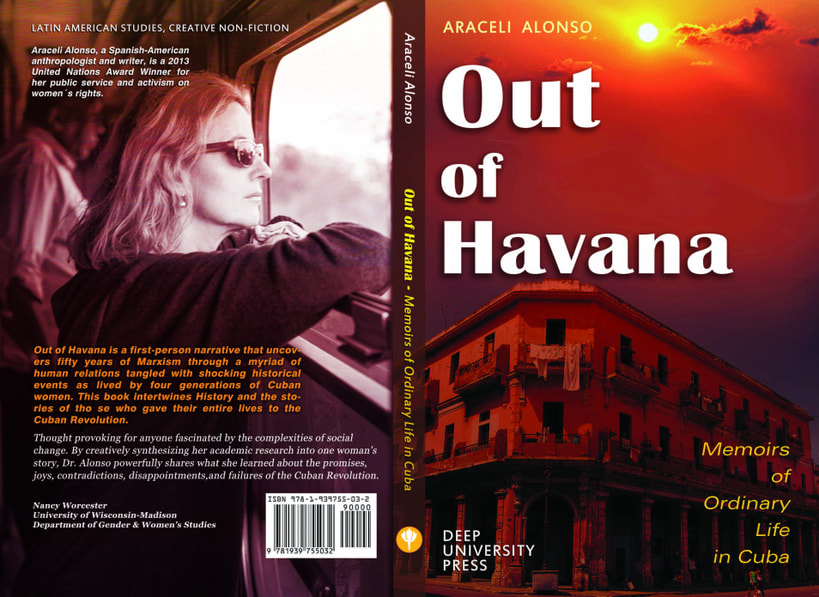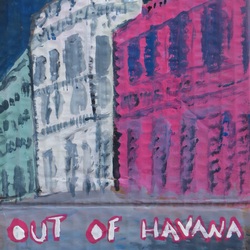Out of Havana: Memoirs of Ordinary Life in Cuba
|
AVAILABLE IN PRINT on most online retailers AND IN PDF (US$19) here:
|
|
Out of Havana is a first-person narrative and creative non-fiction memoir that uncovers fifty years of Marxism through a myriad of human relations tangled with shocking historical events as lived by four generations of Cuban women. Form Batista’s dictatorship to Castro’s Revolution, from the idealism and the euphoria of the 60’s to the pragmatic survival of the 90’s after the collapse of the Berlin Wall, this book is a gallery where Cuban glories and miseries pass by. Out of Havana intertwines History and the lives and the stories of women and men, liberals and conservatives, revolutionaries and dissidents, those who stayed in Cuba and those who went to exile.
|
Rosa, the primary narrative voice in the book, belonged to the generation of Cubans who fought for the Revolution and gave their entire lives to make Marxism work in the tropics. In 1959, nineteen-year-old Rosa joined the triumphant Revolution with enthusiasm and idealism, undertaking her participation as both a personal battle for her own rights and a duty to her Cuban society. As a young revolutionary, Rosa was called to become a heroine at work and to do better than her mother and grandmother; no more women maids in Cuba! In 2000, in her maid's uniform, black and white as European fashion dictated, Rosa vividly narrates the paradoxical entanglement of her life with the Cuban Revolution. Out of Havana is an attempt to preserve the voices who were silenced while striving for a better world of justice and equity for all.
|





